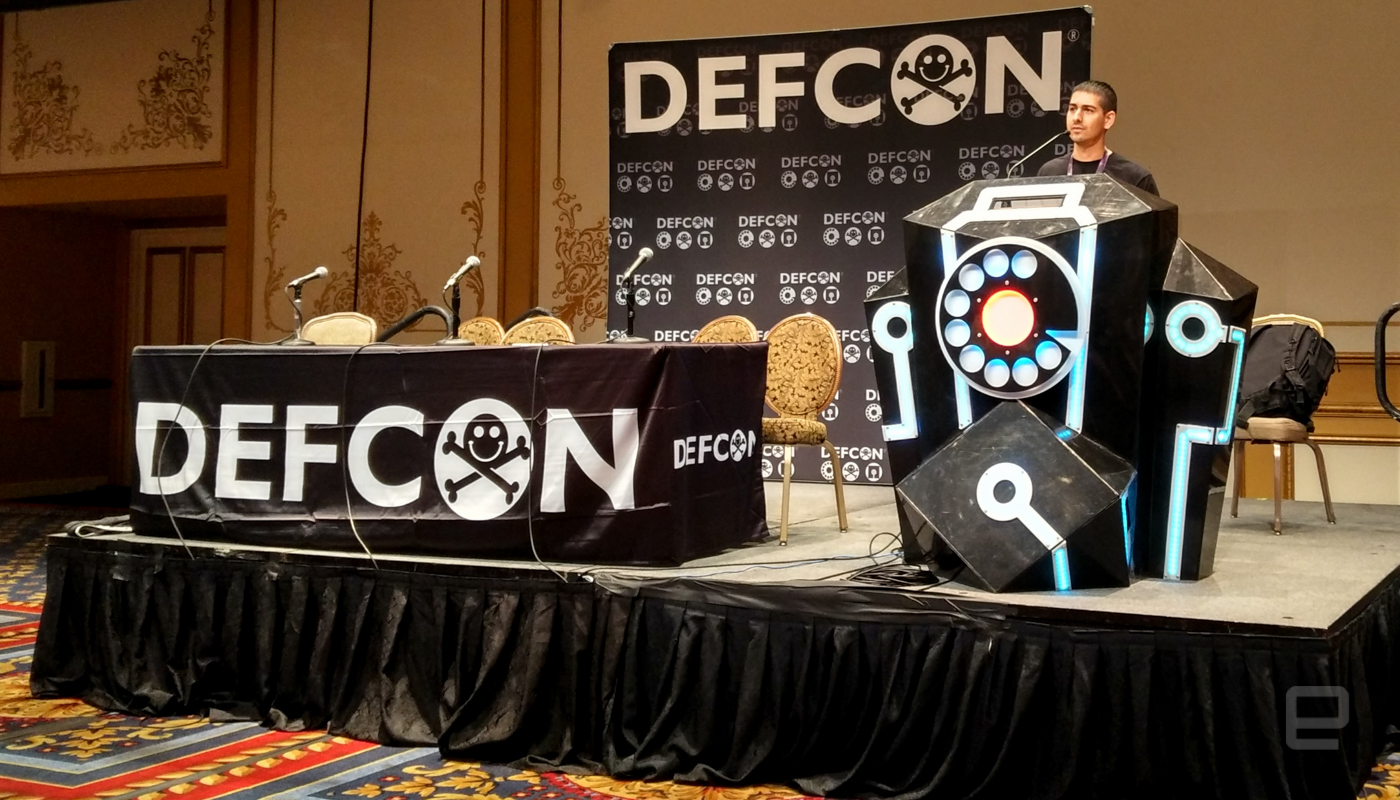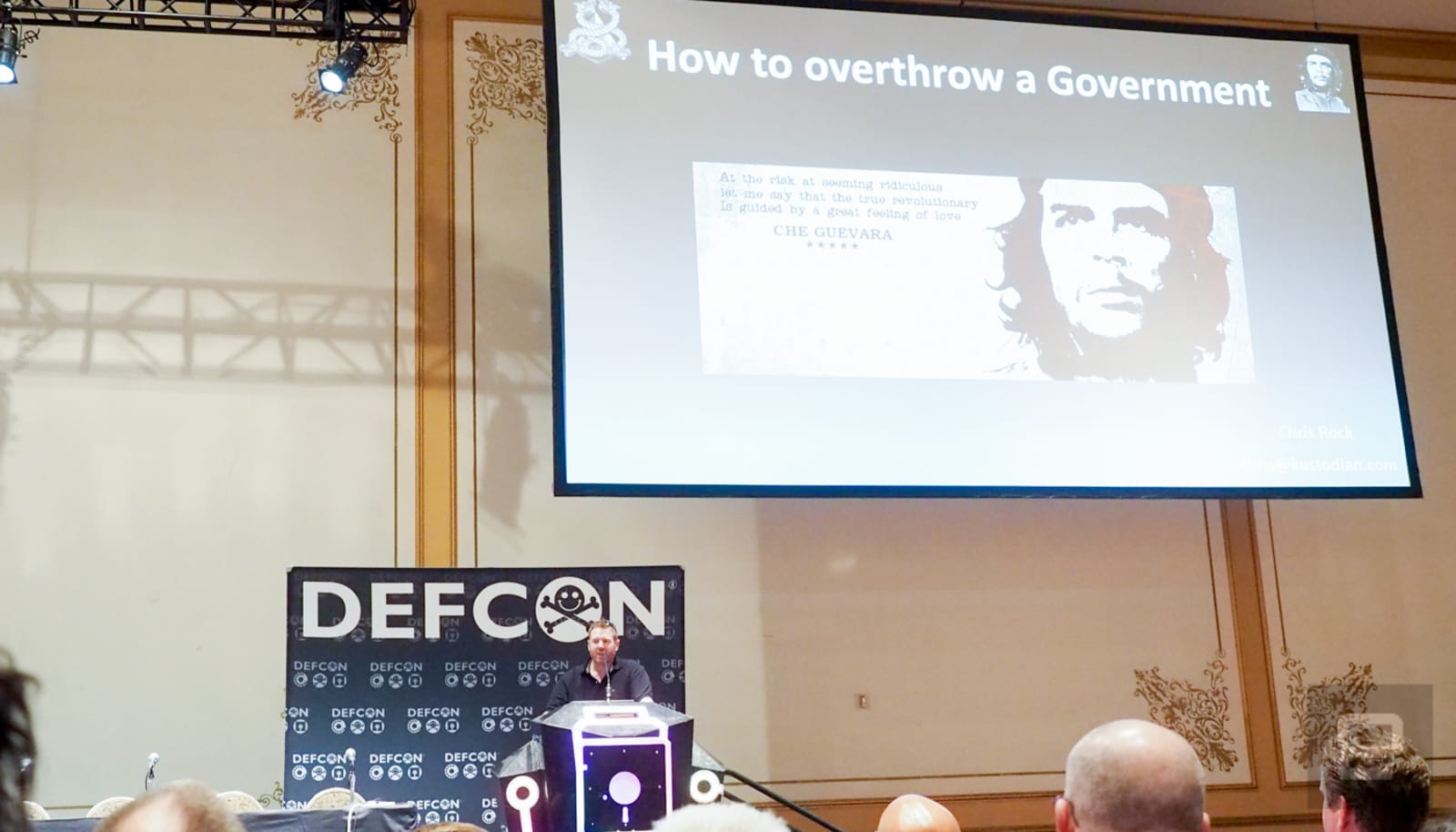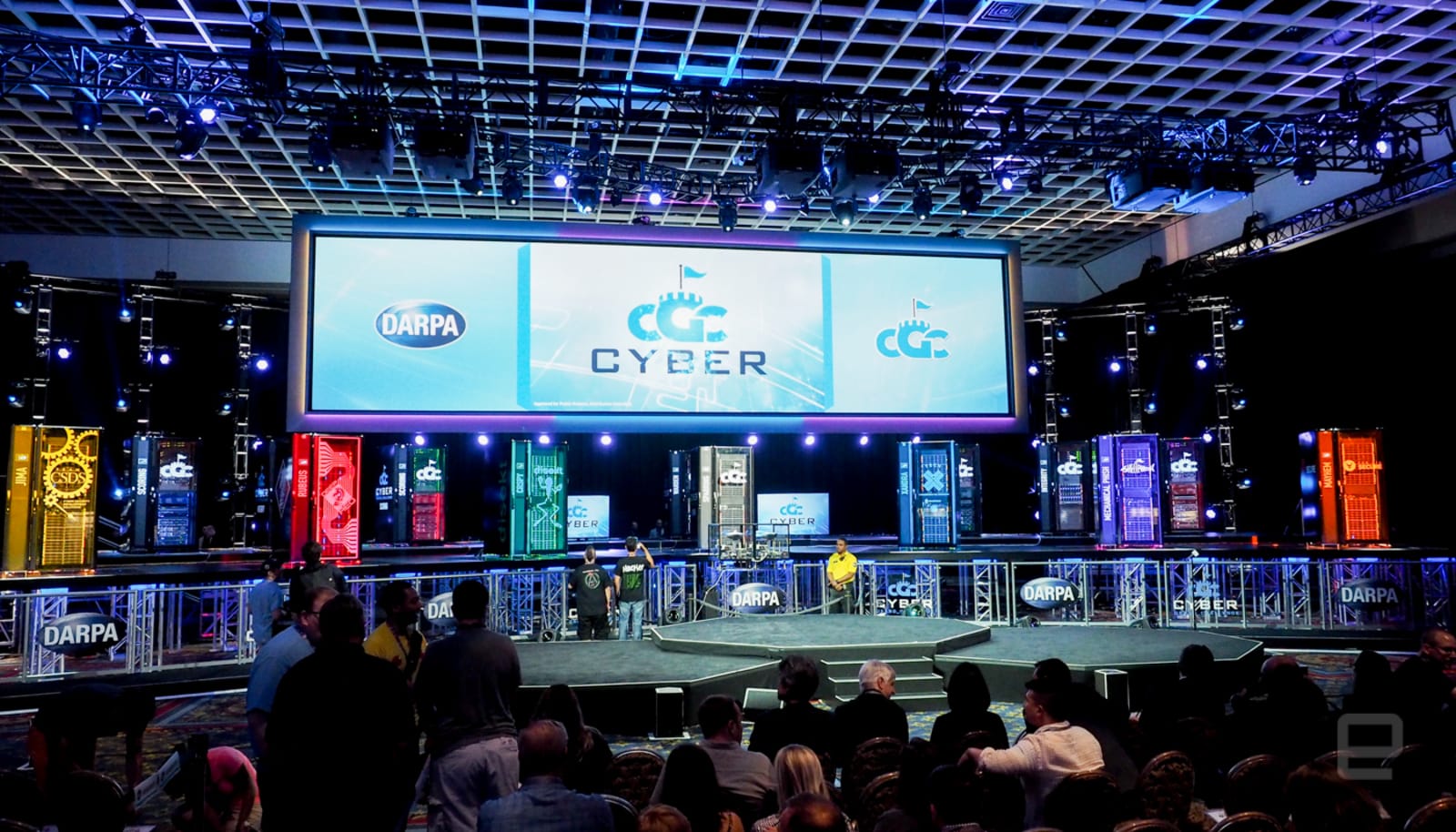
Every year, the world's hacker population descends upon Las Vegas to trade notes, sit in on informational talks and compete in friendly contests -- all in the name of Defcon. But this time out, it's the conference's ever-evolving smart badges that've caught our eye, owing mostly to what lurks beneath. Designed by Ryan Clarke -- the mastermind behind the gathering's Mystery Box challenge -- these hackable IDs, issued according to status (Press, Human, Goons, vendors, etc), come embedded with an LED, a multi-core processor, IR transmitter and accompanying hieroglyphic graphic. But that's not all that makes these high-tech tags so special. Turns out, each one contains a game, buried within its open source software, that's encoded with several cryptographic, linguistic and mathematical layers.
Shying away from hardware-focused hacks of the past, Clarke built this year's scavenger hunt-like game to be more inclusive of attendee skills, as it'll force conference-goers interested in cracking its code to break down social barriers and collaborate with other highly-specialized nerds. What's the end game, you ask? Well, according to Clarke, the puzzle is a continuation of last year's secret agent story (played out by a real-life actor) involving "a [mysterious] society of computer elites." It's not the sort of payoff we'd be after -- something greener and covered with a certain Ben Franklin's face would suffice -- but it sounds intriguing enough. Click on the source below to read more about the makings of this geek sport. And may the pastiest neckbeard win!
Filed under: Misc. Gadgets, Software
Defcon 20 badges meld hieroglyphs, circuitry and cryptography for hacker scavenger hunt originally appeared on Engadget on Fri, 27 Jul 2012 12:19:00 EDT. Please see our terms for use of feeds.
Permalink |
 Wired
Wired |
Email this |
Comments
 Connected sex toys that track your habits can be helpful, but at least one of them is a little too willing to transmit your personal data. Presenters at Def Con have revealed that at least one toy, the We-Vibe 4 Plus, regularly shares sensitive info...
Connected sex toys that track your habits can be helpful, but at least one of them is a little too willing to transmit your personal data. Presenters at Def Con have revealed that at least one toy, the We-Vibe 4 Plus, regularly shares sensitive info...
 Connected sex toys that track your habits can be helpful, but at least one of them is a little too willing to transmit your personal data. Presenters at Def Con have revealed that at least one toy, the We-Vibe 4 Plus, regularly shares sensitive info...
Connected sex toys that track your habits can be helpful, but at least one of them is a little too willing to transmit your personal data. Presenters at Def Con have revealed that at least one toy, the We-Vibe 4 Plus, regularly shares sensitive info...
 Security research Anthony Rose just wanted to try out his Bluetooth range-finding setup. While wandering in his neighborhood, he noticed a lot of Bluetooth locks popping up and decided to do some sniffing of those "security" gadgets (read: capturing...
Security research Anthony Rose just wanted to try out his Bluetooth range-finding setup. While wandering in his neighborhood, he noticed a lot of Bluetooth locks popping up and decided to do some sniffing of those "security" gadgets (read: capturing...
 Last month members of the Turkish military experienced an attempted coup to oust president Recep Tayyip Erdoğan. The overthrow attempt was quickly thwarted, but it might have succeeded if Chris Rock (the security researcher, not the comedian) had had...
Last month members of the Turkish military experienced an attempted coup to oust president Recep Tayyip Erdoğan. The overthrow attempt was quickly thwarted, but it might have succeeded if Chris Rock (the security researcher, not the comedian) had had...
 The spotlights whirl in circles and transition from blue to purple to red and back to blue again. Basking in the glow is a stage constructed to resemble something out of a prime-time singing competition. But instead of showcasing would-be pop stars,...
The spotlights whirl in circles and transition from blue to purple to red and back to blue again. Basking in the glow is a stage constructed to resemble something out of a prime-time singing competition. But instead of showcasing would-be pop stars,...
 The first time I went anywhere near the RSA information security conference in San Francisco, it was by way of a prank.
Two things I love to cover are computer crime and and enterprise security, so when I met friends for drinks at a downtown hotel b...
The first time I went anywhere near the RSA information security conference in San Francisco, it was by way of a prank.
Two things I love to cover are computer crime and and enterprise security, so when I met friends for drinks at a downtown hotel b...





